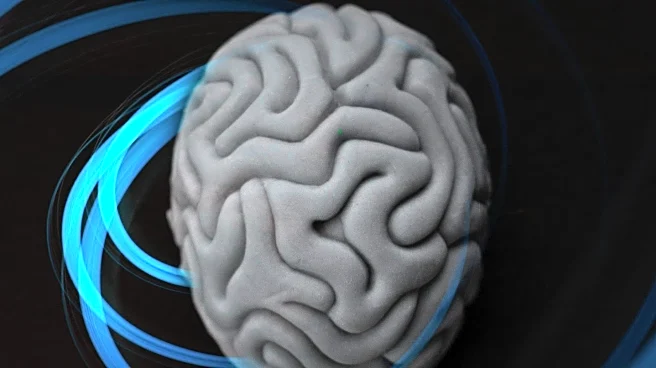What is the story about?
What's Happening?
A study led by researchers from the University of Amsterdam has identified specific neural biomarkers associated with obsessive-compulsive disorder (OCD). These biomarkers are patterns of brain activity present during compulsive behaviors but absent at other times. The study involved electrodes implanted in the brains of 11 individuals with chronic OCD, tracking changes in brain activity in response to compulsive behaviors. The research highlights distinct brain wave patterns during compulsive acts, offering potential for future treatments.
Why It's Important?
The discovery of neural biomarkers for OCD is a significant step forward in understanding and treating the disorder. By linking specific brain activity patterns to OCD symptoms, researchers can develop more targeted therapies, potentially improving treatment outcomes. This research also opens the door to new approaches, such as deep brain stimulation, which could be refined based on these findings. The study's insights could lead to more effective management of OCD, benefiting patients and reducing healthcare costs.














